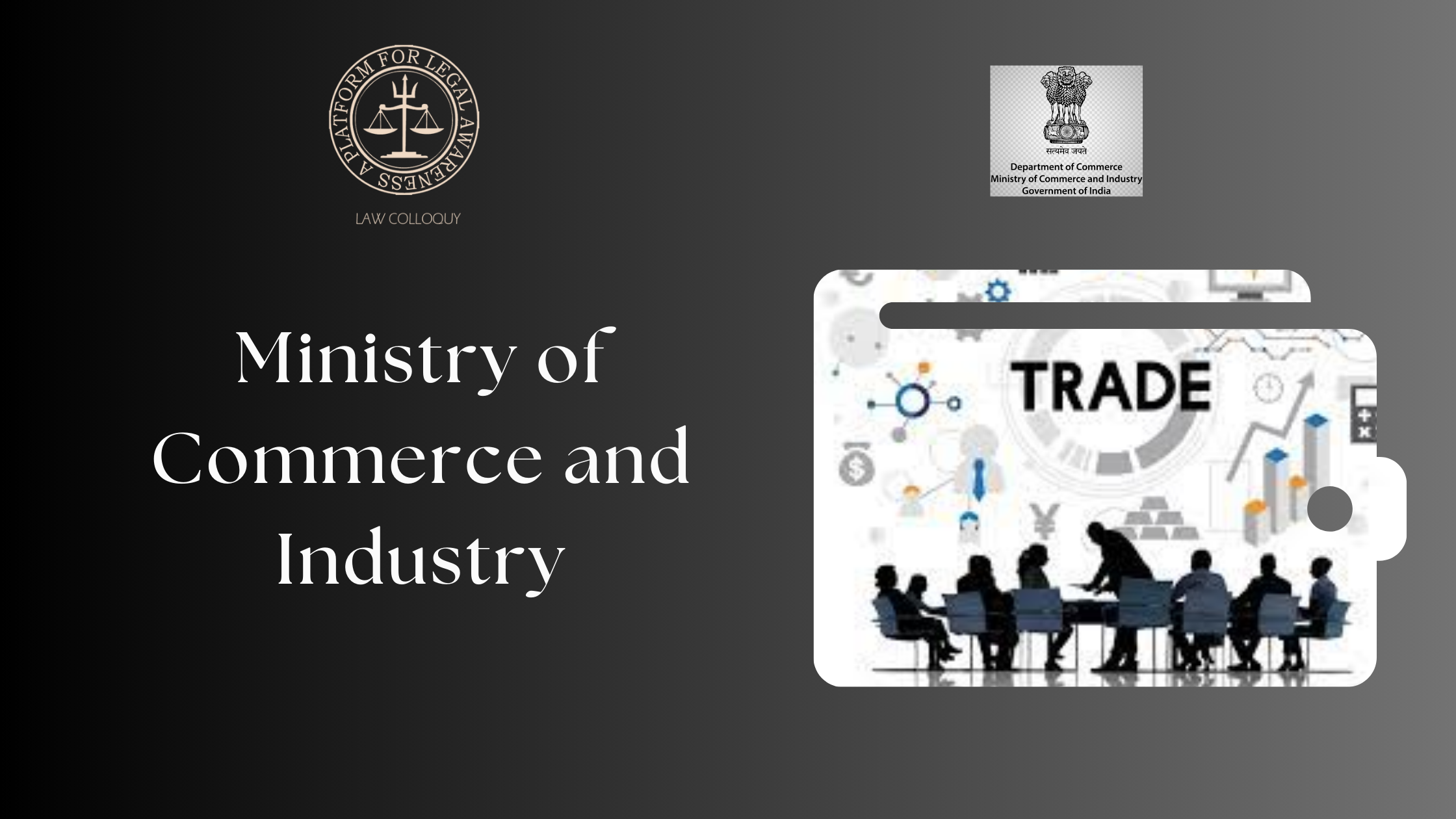Ministry of Commerce and Industry
The Ministry of Commerce and Industry administers two departments, the Department of Commerce and the Department for Promotion of Industry & Internal Trade. The head of the Ministry is a Minister of Cabinet rank.
Department of Commerce
The Department of Commerce under the Ministry of Commerce and Industry has a clear vision and mission to make India a major player in world trade and assume a leadership role in international trade organisations. The key elements are:
Vision
Long-term Vision: To make India a major player in world trade and assume a leadership role in international trade organisations commensurate with India's growing importance.
Medium-term Vision: To achieve $2 trillion in exports of goods and services by 2027-28, with a long-term objective of doubling India's share in global trade.
Mission
Policy Tools: Adopt a targeted commodity and country-wise strategy in the medium term and formulate and periodically review the foreign trade policy in the long run.
Key Functions:
i. Formulating, implementing, and monitoring the Foreign Trade Policy (FTP)
ii. Handling multilateral and bilateral commercial relations
iii. Overseeing Special Economic Zones
iv. Promoting exports and facilitating trade
v. Developing and regulating certain export-oriented industries and commodities
Organisational Structure
i. The department is headed by a secretary and assisted by various senior officers.
ii. It is functionally organised into 10 divisions, including International Trade Policy, Foreign Trade Territorial, Export Products, Export Industries, Export Services, and more.
iii. The Department oversees many attached offices, subordinate offices, autonomous bodies, public sector undertakings, advisory bodies, export promotion councils, and other organisations.
1. Department of Commerce: Key Mandates
a. International Trade:
i. Develop trade policies, including tariffs, non-tariff barriers, and trade remedies.
ii. Engage with international trade organisations (WTO, UNCTAD, etc.) and handle WTO-related issues.
b. Foreign Trade: Goods and Services
i. Oversee foreign trade policies and export regulations (save for specific film imports and exports).
ii. Create export-focused programs such as Agricultural Export Zones (AEZs) and 100% Export-Oriented Units (EOUs).
iii. Coordinate with export councils, boards, and infrastructure initiatives that promote exports.
c. State Trading: Regulate regulations for plantation crops like tea, coffee, spices, and tobacco to promote domestic and export markets.
d. Special Economic Zones (SEZs): Manage SEZ policy, development, operations, and fiscal policies in collaboration with the Department of Expenditure/Revenue.
e. Cadre Management: Manage Indian Trade Service, Supply Service, and Inspection Service cadres, provide training, and plan manpower.
f. Attached/Subordinate Offices: DGTR, DGFT, and DGCI&S, with offices for SEZ development and administrative assistance.
g. Statutory Bodies and PSUs: Manages APEDA, Coffee, Rubber, and Spices Boards, ECGC, ITPO, MMTC, and other trade-related institutions.
h. Legislation: Implements acts such as the Foreign Trade Act (1992), SEZ Act (2005), and export development acts for major commodities (e.g. tea, tobacco, marine products).
2. Department for Promotion of Industry & Internal Trade
The DPIIT is a central government department under India's Ministry of Commerce and Industry. It is responsible for formulating and implementing promotional and developmental measures to grow the industrial sector, considering national priorities and socio-economic objectives.
History:
i. Formation: The department was established in its current form on 27 January 2019.
ii. Previous Name: It was formerly known as the Department of Industrial Policy & Promotion.
iii. Mandate Expansion: The name change to DPIIT reflected the addition of internal trade to its responsibilities.
Responsibilities:
a. Stimulating Investment:
i. Formulating a new industrial policy to attract investments. (New policy under development)
ii. Managing the India Investment Grid (IIG): An online portal for investors to explore investment opportunities across various sectors and states.
b. Fostering Startup Growth:
Acting as the nodal body for the Startup India initiative, Aims to create a friendly ecosystem for startups by:
i. Reducing regulatory hurdles (License Raj)
ii. Simplifying land acquisition, foreign investment approval, and environmental clearances.
iii. Offering benefits like lower patent fees, tax breaks, and self-certification.
iv. Currently, the Angel Tax still exists despite relaxed norms for exemption.
c. Regulating E-commerce:
Developing a comprehensive e-commerce policy to regulate and streamline the digital marketplace.
d. Intellectual Property (IP) Protection:
Formulating policies and overseeing initiatives related to protecting intellectual property rights in areas like patents, trademarks, copyrights, and geographical indications.
For more information, visit their website:- https://www.commerce.gov.in/
Disclaimer: Kindly note that the views and opinions expressed are of the author(s), not Law Colloquy.

